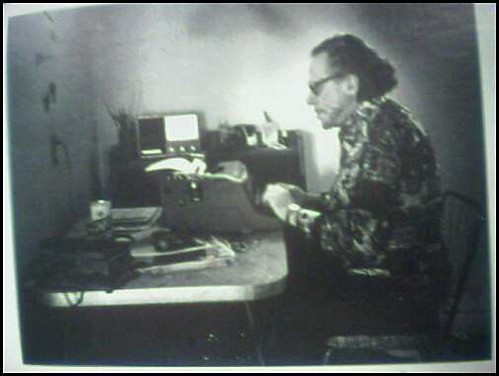 |
| Louis Pasteur, oil painting by Albert Edelfelt (1885) at the Musée d'Orsay, (Public Domain via Wikimedia Commons). |
 Factotum by Charles Bukowski
Factotum by Charles BukowskiMy rating: 5 of 5 stars
It's hard not to enjoy Bukowski's writing. Like with Hemingway and others, why we find it fascinating to read about the shenanigans of people who struggle to write is beyond me. Is it because secretly anyone who reads wishes they could write? Is this part of Robert M. Hutchins' Great Conversation? I don't know.
Yet while some would suggest that Bukowski is the world's greatest misogynist, he doesn't depict anyone else in this novel any worse than he does himself. His mention of ending it all early in the novel hints at the level of self-deprecation that just didn't seem to come through in my reading of Post Office.
In this novel, I feel Bukowski's sense of dereliction of duty but from a sensitive soul who is otherwise intelligent. The constant references to Debussy and Mahler indicate someone who is far more than the alcoholic bum Bukowski portrays in this novel.
Yet it is believable (I am cutting out my adverbs as I write - Bukowski reminds me of a combination of Hemingway and Fitzgerald, hence my hesitation to add "entirely" - he's either believable or he isn't). The protagonist moves from job to job, surrounded by others who share his sense of despair at the world - a world they are part of yet cannot belong to without giving up their sense of identity.
I identify with Bukowski for this reason. Not so much the "beer-sodden" bum who wanders about aimlessly. But the soul who cannot ever belong but is stuck in present company that somehow can turn off their own bullshit meter sufficiently (damn those adverbs!) to carve out an existence of what is essentially living for somebody else.
I find Bukowski's characters admirable because they give up hope without giving up their freedom. Although Henry Chinaski is made to feel as if he doesn't belong because he is excluded from the World War II draft, he still lives as the intelligent loner who doesn't fit in but is stuck anyway.
But the struggle is admirable. Struggle is what we were put on this earth to do. We either struggle against what we do not want, or we struggle for a better life. Henry Chinaski is a drunken, no-hoper bum but he gives me hope - hope that I can live as I choose and not how others choose for me, even if the consequences are high.
And that is why I enjoy Bukowski's work!
And that is why I enjoy Bukowski's work!
View all my reviews
 Donate
Donate














